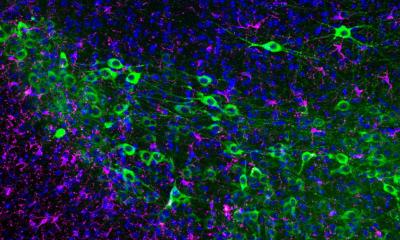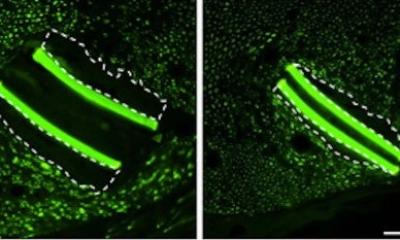News • Seasonal allergies
Your child's learning disability might be something else entirely
Seasonal allergies can be a nuisance for children as well as adults. And in some young children, the symptoms of seasonal allergies can be mistaken for inattentiveness or learning disabilities.

Dr. Maria Garcia-Lloret, a pediatric allergist at the UCLA Mattel Children's Hospital, explains that certain symptoms characteristic of learning disabilities or behavioral problems, such as fidgeting and difficulty concentrating, can arise from a child's discomfort due to seasonal allergies. "I often see children whose allergy symptoms make them so irritated they're uncomfortable sitting still or are constantly touching their face," says Garcia-Lloret. "These children may also have headaches and brain fog that's due to nasal congestion and sinus pressure."
Young kids can't explain themselves with the same language adults might use to describe their symptoms
Maria Garcia-Lloret
Such symptoms, she says, can easily cause restlessness and inattentiveness in school, which teachers and parents may mistakenly attribute to a learning disorder rather than allergies. A child with allergies may have trouble paying attention or concentrating on schoolwork if their allergies are severe enough.
One reason parents may struggle to understand the root cause of such symptoms is that children often have difficulty communicating the symptoms in detail. "With kids, especially young kids, it can be hard for parents to know what's going on with their health," she says. "Young kids can't explain themselves with the same language adults might use to describe their symptoms."
Garcia-Lloret often asks parents whose children have allergy symptoms a series of questions about the severity of those symptoms to determine whether they are related to seasonal allergies. These questions can include how the child is doing in school, whether the child is a good sleeper, whether the child has frequent sinus and ear infections, and how long the child's symptoms have been going on. Symptoms of seasonal allergies can persist longer than people might expect – especially in areas like Southern California, where seasons aren't as rigidly defined. Even if a child's symptoms occur year-round, it's still possible that seasonal allergies are to blame. To accurately diagnose a child, Garcia-Lloret recommends that parents talk with their child’s doctor. "Certainly, a learning disability and seasonal allergies are not mutually exclusive," she says. "Kids can have both, and treating seasonal allergies of course won't cure a learning disability. But it's important not to confuse the symptoms of one for the symptoms of another."
Source: University of California, Los Angeles (UCLA), Health Sciences
07.05.2018











